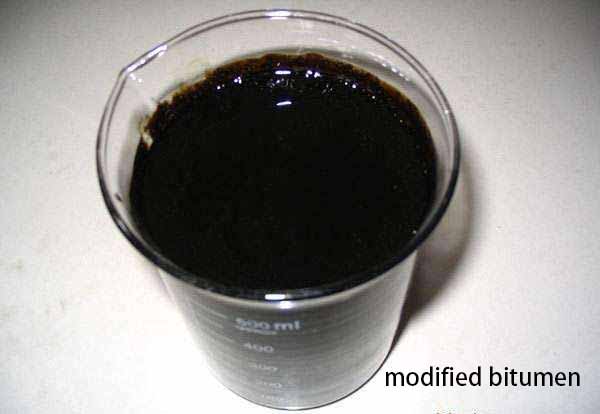Production Technology of Modified Asphalt
The rapid development of China's national economy has brought about rapid growth of road quantity. Although many highway asphalt pavements use heavy traffic road asphalt or imported asphalt which meets the requirements, they still can not meet the needs. The phenomenon of rutting, cracking and brittle pit of asphalt pavement are very serious. As far as asphalt is concerned, the factors affecting the performance of asphalt pavement include asphalt content of asphalt mixture, thickness of asphalt film on contact surface, thickness of asphalt layer, flow characteristics of asphalt, oil source of asphalt and asphalt label, temperature sensitivity, time sensitivity, aging property of asphalt, chemical composition of asphalt, adhesion and viscosity between asphalt and aggregate, etc. Modified asphalt is one of the effective measures to improve the performance of asphalt and asphalt mixture. Starting from the modification principle of SBS modified asphalt, this paper briefly expounds the related problems of its production process.

1. The miscibility mechanism of modified asphalt
Modified asphalt is a system which is composed of macromolecule polymer modifier as dispersing phase and dispersed uniformly into continuous phase of particle size by physical method. Partial adsorption occurs between polymers, and segregation between two phases occurs easily. Good miscibility refers to the fact that the polymer, as a dispersed phase, distributes evenly in the asphalt phase with a certain diameter and has remarkable modification effect.
2. Raw materials for producing modified asphalt
The raw materials for producing modified asphalt include base asphalt, modifier (SBS), stabilizer and so on.
2.1 Selection of Base Asphalt
SBS modified asphalt is made by adding a small amount of thermoplastic rubber into the base asphalt and producing through a certain process. The properties of the modified asphalt are closely related to the base asphalt. Therefore, in order to produce modified asphalt that meets the requirements of specifications, the key is to select base asphalt.
2.1.1Compatibility of Matrix Asphalt and Modifier SBS
The difference in composition and properties of petroleum asphalt is ultimately due to the difference in composition and properties of crude oil. The results show that asphalt is a complex mixture and exhibits elasticity at ambient temperature. High-quality asphalt contains suitable proportion of saturated hydrocarbon, aromatic hydrocarbon, gum and asphaltene. When adding modifier, due to enough soft asphaltene and aromatic dissolution, a mixture of asphalt/system with uniform structure is formed. However, the three major indicators of mechanical asphalt can not fully reflect the component properties of asphalt function. Therefore, we use high-speed shearing machine to sample and modify machine-made asphalt in production, investigate different kinds of modifiers, and finally select the appropriate formula and process.
2.1.2 Selection of appropriate mechanical asphalt labeling
The grade of modified asphalt is distinguished by penetration at 25℃Generally speaking, the penetration of base asphalt is reduced by 20-25 after it is modified by common process. For example, the penetration of 70 heavy-duty asphalt after modification is generally about 45-50, which can only meet the requirements of I-D grade. Therefore, the processing I-D grade generally uses 70 bitumen, I-C grade generally uses 90 bitumen, I-B grade generally uses 110 bitumen.

2.1.3 Matrix Asphalt Should Meet the Technical Standard Requirements of Heavy Interchange Asphalt
At present, there are common road asphalt and heavy traffic asphalt. By comparing the performance of the two asphalts, it is found that the requirements of ductility and wax content of heavy asphalt at 15℃ are emphasized. The outstanding advantage of SBS modified asphalt is that its low temperature elongation performance is greatly improved, so the low temperature ductility of base asphalt is also required. At the same time, the wax content in the base asphalt is directly related to the compatibility of the temperature sensitivity of the modified asphalt. That is to say, when the wax content is high, the miscibility of base asphalt and SBS is poor, the modification effect is not ideal, and the PI value of temperature sensitivity index is smaller. Therefore, in the "Technical Specification for Construction of Highway Modified Asphalt Pavement" (JTJ036-98), it is clearly stipulated that the base asphalt for processing modified asphalt must meet the requirements of heavy-duty asphalt.
3. Temperature control
In the production process of modified asphalt, besides raw materials and equipment, the most important thing is temperature control. The melting point of SBS modifier is about 180 C. The higher the heating temperature of base asphalt, the easier the SBS modifier will be dissolved and the faster the dissolution rate of asphalt will be. However, asphalt is easy to ageing because of its high temperature. SBS modifier will be oxidized, coked, decomposed and degraded, resulting in the decline of service performance. Therefore, the temperature of base asphalt should be controlled between 165 ~180 ℃. In addition, we should pay attention to the storage temperature of modified asphalt . The application shows that the performance of SBS modified asphalt will decrease when it is stored at high temperature for a long time, and the indexes of SBS modified asphalt will not change much when it is stored at 150 - 160 C.
4. Storage of finished modified asphalt
The advantages of finished modified asphalt storage are as follows: first, it can be monitored at any time to check the quality and ensure the performance; second, it can be supplied in time. In order to achieve timely supply, besides the guarantee of production capacity, storage equipment - storage tanks should also be equipped. There are two types of storage tanks, vertical and horizontal. Modified asphalt needs to be stirred or recycled in storage tanks because there are many polar compounds in modified asphalt, while SBS modifier is a non-polar compound with high viscosity, which is easy to accumulate in the upper part, and asphalt is easy to deposit in the lower part, resulting in segregation phenomenon.
5 Concluding remarks
SBS modified asphalt can improve rutting resistance at high temperature, crack resistance at low temperature, water stability, fatigue resistance, aging resistance, surface service performance and driving comfort performance of asphalt pavement.
In the production process of SBS modified asphalt, many factors such as raw materials, equipment, temperature, storage and so on must be considered. Only real-time control can guarantee the quality and reduce the cost.
Facts have proved that the application of modified asphalt repair has been promoted.





